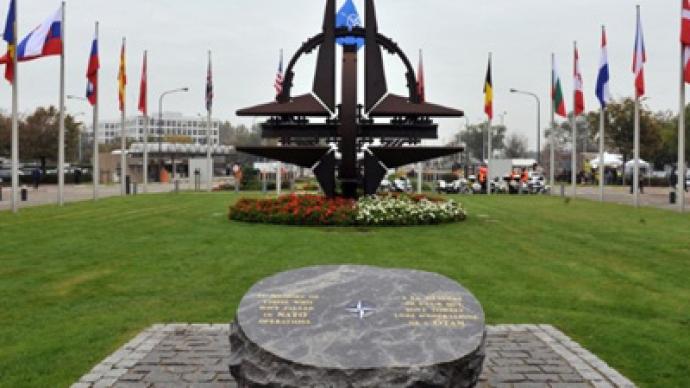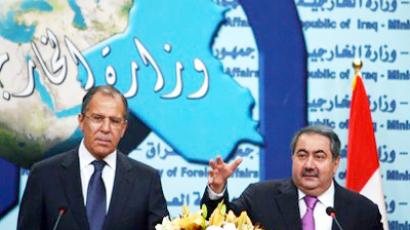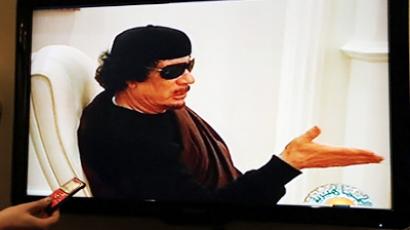Whither NATO?

NATO, deprived of its original and perhaps meaningful role, refuses to dissolve and is instead desperately searching for a raison d’etre.
NATO’s secretary general was on a speaking tour in the US to try to justify the alliance’s reason to be decades after the end of the Cold War. Meanwhile, he meets with President Obama amidst increased infighting in the group as disagreement on where and how to interfere in non-NATO countries like Libya deepens andthe true motives of individual countries come into question.Several decades and wars later, it’s still the question that’s top of mind when it comes to the world’s largest military alliance.“Many wonder after the end of the cold war – why NATO?” opined the speaker introducing NATO Secretary General Anders Fogh Rasmussen to a group of students in Washington DC this week. But he added, however, “NATO is busier than ever.”Set up to counter perceived threats from the Soviet Union, the North Atlantic Treaty Organization has plowed ahead without an enemy“After the end of the Cold War some felt the alliance lost its reason to exist,” Rasmussen told the crowd.But in reality, “what happened in fact and in violation of accords and agreements at that time was NATO aggressively expanded,” according to Sara Flounders of the International Action Center in New York.And a larger alliance that once promised peace has instead pledged bombs and troops in Afghanistan going on a decade, and in its latest endeavor lobs airstrikes into Libya. Despite uniting on new strategic goals back in November, the Libyan intervention has launched the allies into discord.“Some countries don’t want to actually shoot ground targets, some will just hit air targets which there are none,” said Ivan Eland, director at the Center for Peace and Liberty at the Independent Institute.Amidst the infighting, it’s unclear what motives are really behind the planes flying in the name of NATO over the African country.Is it the personal aspirations of a leader?“Is it a French policy or is it a Sarkozy policy?” questioned former Belgian Senator Pierre Galand. “The way he tried today to convince the world he is a man in this capacity to be a leader of the G20, G8.”France was among the first to push for intervention.“France wants to get in on the imperial condominium of reconquest of Africa,” predicted author Diana Johnstone.Is it the showcase of a new arms race?“Military buyers love to have weapons that are tested in a war,” said Eland. “If your weapons system does very well in the war you can count your sales going up.”In fact, the only two planes now in contention for a $10 billion order of 126 planes from India are the Eurofighter Typhoon and the French Rafale – the very ones French and British allies have been flying over Libya. Is it the opportunity to oust the Gaddafi regime to prop up one more favorable to US foreign policy interests? US President Barack Obama has publicly said “it’s US policy that Gaddafi has to go.”“That’s exactly what’s happening, of course [describing] it as a humanitarian intervention,” according to Noam Chomsky, MIT professor.A so-called humanitarian intervention that critics argue was never warranted, but which now may be causing a humanitarian crisis.“We didn’t stop a bloodbath but we are prolonging and perpetuating the suffering of civilians in Libya,” argued Alan J. Kuperman, professor at University of Texas and a scholar on genocide and humanitarian interventions.It’s suffering that is now washing up on the shores of NATO allies by the boatload of refugees, as NATO’s leader come to US shores.The NATO secretary general meets with the keeper of the keys in Washington, President Obama. Though the US has seemingly stepped back from Libya, the US is the largest contributor to NATO and therefore some say arguably the US is NATO.They’re meeting about Libya at a time more and more people call the conflict on the ground a stalemate, and amidst allied infighting and mounting costs in every sense , that same question people have been asking for decades may come to mind: why Nato?














